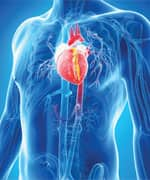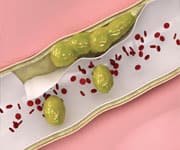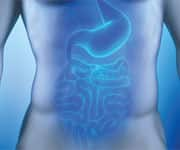Life Extension Magazine®

On April 13, 2013, a meta-analysis performed by the Mayo Clinic was released that looked at 3,600 patients and found huge cardiac benefits in those who supplemented with L-carnitine.1 This study represented the largest, most powerful scientific review of carnitine’s cardiovascular benefits to date.
The Mayo Clinic study found carnitine supplementation was associated with a 27% reduction in all-cause mortality, a 65% reduction in ventricular arrhythmias, and a40% reductionin angina symptoms in patients who had experienced a heart attack.1 The media largely overlooked this favorable report, however.
Instead, headline news stories were created based on a report released a week earlier that had asserted that carnitine (found in red meat) may react with certain gut bacteria in certain individuals to promote a compound (TMAO) that could then cause heart disease.2
These carnitine findings were based on a sub-study of 10 people.2 They were obscure, theoretical, and preliminary. Yet the media ignored hundreds of studies showing significant cardiovascular benefits to carnitine, choosing instead to use this study in isolation to bash anything that contained carnitine.
Life Extension® has thoroughly analyzed the report used by the media to attack carnitine, reviewed the published literature on carnitine and heart disease, and conducted a survey of our members using carnitine. It may not surprise you to learn that our findings contradict the mainstream’s propagandized carnitine attack. This article contains a scientific rebuttal to this recent attack on carnitine.
As a Life Extension member, I hope you appreciate discovering the facts behind misleading reports spewing from today’s headline-frenzied media.
Preliminary Study Questions Carnitine’s Role in Cardiovascular Disease, Generates Misleading Media Headlines
A recent investigational study published in the journal Nature Medicine examined levels of a compound called trimethylamine-N-oxide (TMAO) in relationship to microbial metabolism of carnitine in the gut.2 The researchers cite very recent, limited research suggesting TMAO may be a risk factor for cardiovascular disease. They then provocatively propose that carnitine consumption may increase cardiovascular risk in some individuals due to increasing TMAO levels following microbial metabolism of the compound.
The authors report the intestinal bacterial flora of people who consume red meat, a significant source of dietary carnitine, was conducive to TMAO production in the presence of carnitine, whereas vegetarians produced little to no TMAO under the same circumstances. They concluded that alterations in the intestinal microbiota associated with meat consumption may promote the formation of TMAO from dietary carnitine, and therefore suggested that the high carnitine content of red meat may be one of the reasons it is linked to heart disease.2
Following publication of this study, mainstream media outlets propagated misleading headlines blaming carnitine for heart disease without explaining that these findings were very preliminary and that red meat consumption was required for the observed effect.3-5 Life Extension members are well aware of the potential health threats associated with red meat consumption, such as exposure to saturated fats and advanced glycation end products,6 and may already consume heart-healthy, fish/plant-based foods contained in the Mediterranean diet.
These deceptive media headlines have generated concern that supplemental forms of L-carnitine may be detrimental to heart health. This notion flies in the face of numerous published, peer-reviewed studies showing L-carnitine promotes cardiovascular health in a variety of ways. The media’s effort to generate outrageous headlines has undermined decades of scientific research on the heart-health benefits of carnitine.
New Mayo Clinic Meta-Analyses: Carnitine Improves Outcomes in Heart Attack Patients

Ironically, days after publication of the carnitine article in Nature Medicine, a meta-analysis of the research on carnitine and heart health was published by researchers from the Mayo Clinic.1 This large systematic review provides strong evidence for carnitine’s benefits in heart health. This article examined 13 controlled trials that enrolled, collectively, 3,629 participants, representing the largest, most powerful scientific review of carnitine’s cardiovascular benefits to date.
The authors of the Mayo Clinic study found carnitine supplementation was associated with a 27% reduction in all-cause mortality, a 65% reduction in ventricular arrhythmias, and a 40% reduction in angina symptoms in patients experiencing a heart attack.1These effects were thought to occur through multiple mechanisms, including improved energy metabolism in the mitochondria, decreased ischemia, and enhanced left ventricle function.
The authors describe carnitine as an inexpensive therapy with an “excellent safety profile” which could potentially be used in patients with angina or who are at risk for angina after suffering from a heart attack.1 Based on the results of this meta-analysis, the authors suggest L-carnitine as a potential future therapy for heart attack and secondary coronary prevention and treatment, including angina. The scientists state: “Further study with large randomized controlled trials of this inexpensive and safe therapy in the modern era is warranted.” Unfortunately they also note: “However, a large trial may never be performed because L-carnitine is an over-the counter supplement available to the public, which decreases the potential revenue compared with a synthesized [pharmaceutical] product.” 1
Carnitine’s benefits are well established and Life Extension has written about them at length over the years. The next several paragraphs describe some of the key health benefits associated with carnitine.
Carnitine Reduces Death Rates
The heart muscle uses fat as its primary energy source. Carnitine is a fat-transporting compound that is absolutely essential for normal heart function. 1,7 Over time, the decline of carnitine plays a role in the weakening of the heart’s muscles.8
People with heart muscle damage due to heart attacks or heart failure have especially low carnitine levels.9-11 Fortunately, carnitine supplementation has proven to be remarkably effective in fighting and even reversing the heart-weakening effects of that drop.8
In one study, 160 male and female heart attack survivors between 39 and 86 years old received either 4 grams/day of L-carnitine or a placebo for 12 months.12 The patients taking L-carnitine experienced significantly favorable decreases in heart rate and blood pressure; they also had improved blood lipid profiles. Most importantly, those supplementing with carnitine had a dramatically reduced death rate compared to those not taking carnitine. Patients taking carnitine had a death rate of just 1.2% in the entire year, while 12.5% of control patients died, with the majority of deaths attributed to repeat heart attacks .12
L-carnitine supplementation also prevents the progression of heart muscle damage in people with congestive heart failure and improves exercise tolerance in people who develop chest pain (angina) with exertion.9 In one study, 55% of patients experienced improvement in their standard heart failure classification.9
People with angina, an early sign of impaired blood flow (ischemia) to the heart muscle, benefited from carnitine supplements. A natural derivative of L-carnitine, propionyl-L-carnitine, at a dose of 500 mg 3 times daily , increased the average time patients could exercise without EKG signs of ischemia by an impressive 450%.10 That result indicated improved blood flow to heart muscle cells following ischemia, an effect amply demonstrated in animal studies.13,14
Carnitine also increases concentrations of nitric oxide, which helps endothelial cells relax and increase blood flow, an effect that can help lower blood pressure.15-17 Three weeks of supplementation with 2 grams of L-carnitine improved blood flow by 17% during the critical after-meal period in a group of people fed a high-fat meal; placebo patients had a 12% decrease in blood flow.18 And a daily 6-gram intravenous dose of propionyl-L-carnitine for one week improved walking distance in people with peripheral arterial disease by 28%.19
What You Need to Know
 |
Media Deception of Carnitine’s Established Benefits
- Carnitine is a fat-transporting compound that is absolutely essential for normal heart function.
- L-carnitine supplementation also prevents the progression of heart muscle damage in people with congestive heart failure and improves exercise tolerance in people who develop chest pain (angina) with exertion.
- Carnitine also has multiple favorable effects on blood sugar and insulin resistance, the hallmarks of type II diabetes.
- Studies also indicate that some forms of carnitine are effective at relieving clinical symptoms of cardiovascular conditions such as peripheral arterial disease, angina, coronary artery disease, cardiomyopathy, intermittent claudication, ischemic heart disease, atherosclerosis, and congestive heart failure.
- A recent investigational study examined levels of a compound called trimethylamine-N-oxide (TMAO) in relationship to microbial metabolism of carnitine in the gut.
- The researchers cite very recent, limited research suggesting TMAO may be a risk factor for cardiovascular disease.
- Despite an exceedingly small subject number, they then provocatively propose that carnitine consumption may increase cardiovascular risk in some individuals due to increasing TMAO levels following microbial metabolism of the compound.
- What the media reports didn’t say was that these results are very preliminary, based on limited research (versus the extensive body of peer-reviewed research attesting to carnitine’s benefits), applicable only in red-meat consumption, and contradictory to the vast majority of research on carnitine.
Carnitine Fights Diabesity

As obesity rates skyrocket, more and more Americans are developing type II diabetes as a result, producing a syndrome called “diabesity.”20,21
Since carnitine helps the mitochondria utilize energy, it plays a critical role in reducing the occurrence and impact of diabesity.22,23 Studies show that in addition to helping the mitochondria burn fat as energy, carnitine is also vital for removing waste products from mitochondria.23,24 This is important, because we now recognize that the buildup of mitochondrial waste products is one of the most important contributors to insulin resistance, which further promotes high blood sugar and obesity.25
Obesity and aging contribute to low carnitine levels, which compromises mitochondrial performance and increases insulin resistance, promoting further obesity and carnitine reduction. Restoring carnitine levels to their youthful values is an effective way to break this deadly cycle.23
Human volunteers who took L-carnitine 3 grams/day for 10 days had favorable changes in body composition.26 Supplemented patients used their fat for energy, burning it 22% faster than control patients, without any increase in muscle protein breakdown. Another study,using 2 grams/day for 6 months, demonstrated a loss of total fat mass of 4 pounds, with a gain in lean muscle mass of 8.4 pounds.27
Animal studies confirm and extend these findings, showing that propionyl-L-carnitine decreases body weight gain, food intake, and fat composition, while improving insulin resistance.22
Carnitine also has multiple favorable effects on blood sugar and insulin resistance, the hallmarks of type II diabetes.24 Animals fed a high fat diet develop the same symptoms and signs that humans do: obesity, insulin resistance, abnormal lipid profiles, and liver damage, which are known as metabolic syndrome. Just 4 weeks of treatment with L-carnitine reversed all of those abnormal parameters.20,28,29
Similar effects have been found in diabetic humans. Two grams of L-carnitine twice daily for 10 daysimproved insulin sensitivity and reduced insulin levels.30 L-carnitine supplementation of 2 grams/day caused a significant reduction in plasma free fatty acids, which contribute to insulin resistance.31 Three grams/day were shown to reduce simulated after-meal blood sugar spikes from 157 mg/dL to 132 mg/dL (oral glucose tolerance test).32 A significant number of studies document the deadly impact of elevated after-meal glucose levels.
Carnitine Protects Against Heart Disease

Research suggests that a specific form of carnitine, called propionyl-L-carnitine (PLC), plays an important role in protecting the function and health of endothelial cells.33-35 Studies also indicate that PLC may act as a nutritional corrective agent, relieving clinical symptoms of cardiovascular conditions such as peripheral arterial disease, angina, coronary artery disease, cardiomyopathy, intermittent claudication, ischemic heart disease, atherosclerosis, and congestive heart failure.36-42
PLC passes across the mitochondrial membrane to supply L-carnitine directly to the mitochondria, the energy-producing organelles of all cells.43 This is important because heart muscle cells and endothelial cells burn fatty acids rather than glucose for 60% of their energy. 44
Carnitine deficiency has been associated with congestive heart failure.45 PLC supplementation has been reported to increase exercise capacity, optimize energy production, and reduce ventricular size in patients with congestive heart failure.38
The myocardium, the muscular substance of the heart, comprises cells called cardiomyocytes. A study of cardiomyocytes found that PLC helped to correct an imbalance between the production and utilization of adenosine triphosphate (ATP), the energy currency used throughout the body. This suggests that PLC may improve cardiac performance by improving energy metabolism and optimizing ATP levels.46
An animal study suggests PLC may help to prevent or decrease the severity of atherosclerosis. In rabbits fed a high-cholesterol diet, which normally induces endothelial dysfunction and subsequent atherosclerosis, supplementation with PLC resulted in reduced plaque thickness, markedly lower triglyceride levels, and reduced proliferation of foam cells, thereby preventing the progression of atherosclerosis.41
PLC has been shown to have a protective role against vascular cell inflammation that other carnitines do not. When rodents were exposed to irritating chemicals, PLC protected their vascular cells from this source of damage, but L-carnitine and acetyl-L-carnitine did not, leading the study authors to support “a specific protective role of PLC in the vascular component of the inflammatory process.”34
PLC improves endothelial function by increasing nitric oxide production in animals with normal blood pressure and in animal models of hypertension. The increased nitric oxide production induced by PLC is related to its antioxidant properties; PLC reduces reactive oxygen species and increases nitric oxide production in the endothelium in the presence of superoxide dismutase (SOD) and catalase.47
Oxygen-deprived endothelial cells produce large amounts of free radicals. Laboratory findings suggest that PLC protects these cells during periods of oxygen deprivation. When blood flow is restored, PLC also allows the cells to regain their lost energy charge much faster.35
An animal study indicates that PLC prevents abnormal heart muscle function associated with diabetes. The researchers found that PLC significantly increased both fatty acid and glucose utilization while restoring cardiac muscle function. These findings suggest PLC prevents diminished cardiac function associated with diabetes, possibly by promoting a favorable shift in glucose and fatty acid metabolism.46
Life Extension Conducts Survey of Members Using Carnitine Supplementation
As part of a thorough evaluation of this issue, Life Extension’s Health Advisors spoke to a representative sample of 115 members who supplement with carnitine and inquired as to their experience with the compound. Not surprisingly, not one member reported having a cardiovascular event such as a heart attack or stroke after initiation of carnitine supplementation.
Summary Examination of the Media-Hyped Carnitine Article Exposes Several Problems
Despite the media attention given to the negative carnitine study published in Nature Medicine, caution must be used when applying the results to cardiovascular risk. Life Extension has carefully examined this study and identified the following factors with this study that are summarized below.
- Limited research on TMAO and associated effects on human health prevents causal interpretation at this time . A search of the peer-reviewed literature using terms “TMAO” and “atherosclerosis” yields only 4 results, with the first suggestion of a potential association in 2011.48 Correlation is not causation, and in fact, TMAO is found in relatively large quantities in fish, a food that is linked to a markedly reduced risk of cardiovascular events. In contrast, components of red meat such as saturated fat raise LDL cholesterol, and a search of the peer-reviewed literature using the terms “LDL,” “cholesterol,” and “atherosclerosis” returns over 10,500 results.
- Only 10 human subjects examined in carnitine supplementation substudy. The researchers used only 10 subjects in their small substudy of carnitine supplementation and TMAO levels.2 This is a very small data set with which to make such sweeping conclusions. Since so few humans were directly examined in this context, the validity and applicability of the scientists’ findings are questionable at best.
- Published, peer-reviewed research demonstrates L-carnitine prevents the progression of atherosclerotic lesions. The recent negative study published in Nature Medicine focused upon the metabolic conversion of L-carnitine to TMAO by gut bacteria and the differences in the gut microbiome between red meat eaters and vegetarians.2 In fact, many studies show that L-carnitine has a variety of beneficial effects upon cardiovascular function, including prevention of the progression of atherosclerotic lesions. For example, one study reported that in the context of hypercholesterolemia, L-carnitine supplementation “completely prevented the progression of atherosclerotic lesions induced by hypercholesterolemia in both aorta and coronaries.”49 In another study, supplementation with propionyl-L-carnitine (PLC), a derivative of carnitine used as a drug in Europe for treatment of atherosclerosis, “induced a marked lowering of plasma triglycerides, very low density lipoprotein (VLDL) and intermediate density lipoprotein (IDL) triglycerides…” while plasma cholesterol was slightly and transiently reduced. In addition, PLC treatment “…exhibited a reduction of plaque thickness and extent…and a reduction of the number of both proliferating macrophage- and smooth muscle cell-derived foam cells.”41 Foam cells are precursors to atherosclerotic lesions.

- Published, peer-reviewed evidence shows L-carnitine effectively treats peripheral artery disease caused by atherosclerosis. Intermittent claudication (IC) is a painful, atherosclerotic syndrome that is known to be caused by peripheral artery disease.50 A 2013 systematic review of 40 articles on IC found that L-carnitine demonstrates a benefit in functional performance with carnitine supplementation. The authors suggest routine supplementation with carnitine “may therefore be a useful adjunct therapy for management of intermittent claudication.”51
- Heavy red meat consumption is a known, well-validated risk factor for atherosclerosis in contrast to plant-based diets. In the recent study, L-carnitine alone did not raise TMAO levels—the increases in TMAO were observed when L-carnitine was exposed to the bacterial gut microbiome of red meat eaters in comparison with vegetarians’ gut microbiome.2 Extrapolation of these preliminary test results involving the gut microbiome in heavy red meat eaters is not representative of health conscious individuals who typically limit red meat consumption given the known adverse health effects associated with a diet rich in red meat.
- Heart-healthy salmon is associated with high TMAO levels. Consistency of association is critical in order to draw conclusions from study data across the published literature. The fact that heart-healthy fish consumption is associated with an increase in TMAO levels is challenging to reconcile with the idea that TMAO necessarily causes atherosclerosis. For example, one research team reported that consumption of salmon, a food known for cardiovascular health benefits, led to an increase in TMAO levels in human test subjects.52 In another study, it was also observed that TMAO levels increased in individuals consuming large amounts of seafood products.53
- Carnitine decreases LDL and VLDL cholesterol, established risk factors for cardiovascular disease. Unlike TMAO, LDL, and VLDL cholesterol blood levels are widely recognized risk factors for cardiovascular disease. Carnitine supplementation has been shown to reduce both LDL and VLDL cholesterol levels.54
- The gut microbiome of red meat eaters is different from vegetarians. In this study vegans had almost no increase in TMAO levels.2 It was suggested that this was due to a different gut microbiota that develops in vegetarians compared to omnivores.

- Probiotic supplementation may modulate gut microbiota and suppress formation of TMAO. Not all gut bacteria strongly generate TMAO. On the contrary, certain strains of commensal bacteria have been shown to manipulate the gut microbiome in a manner favorable to human health. Specifically, members of the Lactobacilli species were inversely associated with TMAO in the human subjects examined.2 Also, Lactobacilli spp. have been shown to increase the ratio of genus Bacteroidetes to genus Firmicutes in the human intestine following oral administration; this is important because many species of the Firmicutes genus were shown to produce TMAO (though the associations were not consistent across all species of Firmicutes tested).2,55 In addition, the current study showed that antibiotics, by suppressing intestinal bacterial colonization, virtually abolished TMAO formation.2 While antibiotic prophylaxis is not an ideal method for reducing TMAO formation since it also eliminates beneficial intestinal bacteria, evidence suggests that certain members of the probiotic species Bifidobacterium and Lactobacilli may generate antibiotic-like metabolic byproducts called short-chain fatty acids that modify the intestinal microbiota in a favorable way.56
Summary
In the wake of a single negative study, deceptive media headlines have generated concern that supplemental forms of L-carnitine may be detrimental to heart health. This notion flies in the face of numerous published, peer-reviewed studies showing L-carnitine promotes cardiovascular health in a variety of ways. The media’s effort to generate outrageous headlines has undermined decades of scientific research on the heart-health benefits of carnitine.
Carnitine is a vital nutrient for health. The discovery of carnitine’s ability to maximize cellular fuel efficiency and minimize the impact of normal cellular metabolism on delicate cellular machinery has led to a revolution in the way scientists think about some of the most troubling age-related conditions. Supplementing with carnitine can help preserve cell energy levels, enhance heart muscle strength, reduce the impact of obesity and diabetes, and protect heart attack victims from dying.
If you have any questions on the scientific content of this article, please call a Life Extension® Health Advisor at 1-866-864-3027.
References
- Available at: http://www.mayoclinicproceedings.org/article/S0025-6196(13)00127-4/fulltext. Accessed May 1, 2013.
- Koeth RA, Wang Z, Levison BS, et al. Intestinal microbiota metabolism of l-carnitine, a nutrient in red meat, promotes atherosclerosis. Nat Med. Apr 7, 2013.
- Available at: http://www.huffingtonpost.com/2013/04/08/l-carnitine-heart-disease-red-meat-compound_n_3037372.html. Accessed April 30, 2013.
- Available at: http://digitaljournal.com/article/347522. Accessed April 30, 2013.
- Available at: http://www.nytimes.com/2013/04/08/health/study-points-to-new-culprit-in-heart-disease.html?pagewanted=all. Accessed April 30, 2013.
- Feskens EJ, Sluik D, van Woudenbergh GJ. Meat consumption, diabetes, and its complications. Curr Diab Rep. 2013 Apr;13(2):298-306.
- Chao HH, Chen CH, Liu JC, Lin JW, Wong KL, Cheng TH. L-Carnitine attenuates angiotensin II-induced proliferation of cardiac fibroblasts: role of NADPH oxidase inhibition and decreased sphingosine-1-phosphate generation. J Nutr Biochem. 2010 Jul;21(7):580-8.
- Gomez LA, Heath SH, Hagen TM. Acetyl-L-carnitine supplementation reverses the age-related decline in carnitine palmitoyltransferase 1 (CPT1) activity in interfibrillar mitochondria without changing the L-carnitine content in the rat heart. Mech Ageing Dev. 2012 Feb-Mar;133(2-3):99-106.
- Kobayashi A, Masumura Y, Yamazaki N. L-carnitine treatment for congestive heart failure--experimental and clinical study. Jpn Circ J. 1992 Jan;56(1):86-94.
- Bartels GL, Remme WJ, den Hartog FR, Wielenga RP, Kruijssen DA. Additional antiischemic effects of long-term L-propionylcarnitine in anginal patients treated with conventional antianginal therapy. Cardiovasc Drugs Ther. 1995 Dec;9(6):749-53.
- Molyneux R, Seymour AM, Bhandari S. Value of carnitine therapy in kidney dialysis patients and effects on cardiac function from human and animal studies. Curr Drug Targets. 2012 Feb;13(2):285-93.
- Davini P, Bigalli A, Lamanna F, Boem A. Controlled study on L-carnitine therapeutic efficacy in post-infarction. Drugs Exp Clin Res. 1992;18(8):355-65.
- Stasi MA, Scioli MG, Arcuri G, et al. Propionyl-L-carnitine improves postischemic blood flow recovery and arteriogenetic revascularization and reduces endothelial NADPH-oxidase 4-mediated superoxide production. Arterioscler Thromb Vasc Biol. 2010 Mar;30(3):426-35.
- Lapi D, Sabatino L, Altobelli GG, Mondola P, Cimini V, Colantuoni A. Effects of propionyl-L-carnitine on ischemia-reperfusion injury in hamster cheek pouch microcirculation. Front Physiol. 2010;1:132.
- Gomez-Amores L, Mate A, Miguel-Carrasco JL, et al. L-carnitine attenuates oxidative stress in hypertensive rats. J Nutr Biochem. 2007 Aug;18(8):533-40.
- Alvarez de Sotomayor M, Bueno R, Perez-Guerrero C, Herrera MD. Effect of L-carnitine and propionyl-L-carnitine on endothelial function of small mesenteric arteries from SHR. J Vasc Res. 2007;44(5):354-64.
- de Sotomayor MA, Mingorance C, Rodriguez-Rodriguez R, Marhuenda E, Herrera MD. l-carnitine and its propionate: improvement of endothelial function in SHR through superoxide dismutase-dependent mechanisms. Free Radic Res. Aug 2007;41(8):884-891.
- Volek JS, Judelson DA, Silvestre R, et al. Effects of carnitine supplementation on flow-mediated dilation and vascular inflammatory responses to a high-fat meal in healthy young adults. Am J Cardiol. 2008 Nov 15;102(10):1413-7.
- Loffredo L, Pignatelli P, Cangemi R, et al. Imbalance between nitric oxide generation and oxidative stress in patients with peripheral arterial disease: effect of an antioxidant treatment. J Vasc Surg. 2006 Sep;44(3):525-30.
- Amin KA, Nagy MA. Effect of carnitine and herbal mixture extract on obesity induced by high fat diet in rats. Diabetol Metab Syndr. 2009;1(1):17.
- Astrup A, Finer N. Redefining type 2 diabetes: ‘diabesity’ or ‘obesity dependent diabetes mellitus’? Obes Rev. 2000 Oct;1(2):57-9.
- Mingorance C, Gonzalez del Pozo M, Dolores Herrera M, Alvarez de Sotomayor M. Oral supplementation of propionyl-l-carnitine reduces body weight and hyperinsulinaemia in obese Zucker rats. Br J Nutr. 2009 Oct;102(8):1145-53.
- Noland RC, Koves TR, Seiler SE, et al. Carnitine insufficiency caused by aging and overnutrition compromises mitochondrial performance and metabolic control. J Biol Chem. 2009 Aug 21;284(34):22840-52.
- Ringseis R, Keller J, Eder K. Role of carnitine in the regulation of glucose homeostasis and insulin sensitivity: evidence from in vivo and in vitro studies with carnitine supplementation and carnitine deficiency. Eur J Nutr. Feb 2012;51(1):1-18.
- Terman A, Kurz T, Navratil M, Arriaga EA, Brunk UT. Mitochondrial turnover and aging of long-lived postmitotic cells: the mitochondrial-lysosomal axis theory of aging. Antioxid Redox Signal. 2010 Apr;12(4):503-35.
- Wutzke KD, Lorenz H. The effect of l-carnitine on fat oxidation, protein turnover, and body composition in slightly overweight subjects. Metabolism. 2004 Aug;53(8):1002-6.
- Malaguarnera M, Cammalleri L, Gargante MP, Vacante M, Colonna V, Motta M. L-Carnitine treatment reduces severity of physical and mental fatigue and increases cognitive functions in centenarians: a randomized and controlled clinical trial. Am J Clin Nutr. 2007 Dec;86(6):1738-44.
- Mingorance C, Duluc L, Chalopin M, et al. Propionyl-L-carnitine corrects metabolic and cardiovascular alterations in diet-induced obese mice and improves liver respiratory chain activity. PloS one. 2012;7(3):e34268.
- Xia Y, Li Q, Zhong W, Dong J, Wang Z, Wang C. L-carnitine ameliorated fatty liver in high-calorie diet/STZ-induced type 2 diabetic mice by improving mitochondrial function. Diabetol Metab Syndr. 2011;3:31.
- Molfino A, Cascino A, Conte C, Ramaccini C, Rossi Fanelli F, Laviano A. Caloric restriction and L-carnitine administration improves insulin sensitivity in patients with impaired glucose metabolism. JPEN J Parenter Enteral Nutr. 2010 May-Jun;34(3):295-9.
- Lohninger A, Radler U, Jinniate S, et al. Relationship between carnitine, fatty acids and insulin resistance. Gynakol Geburtshilfliche Rundsch. 2009;49(4):230-5.
- Galloway SD, Craig TP, Cleland SJ. Effects of oral L-carnitine supplementation on insulin sensitivity indices in response to glucose feeding in lean and overweight/obese males. Amino Acids. 2011 Jul;41(2):507-15.
- Bertelli A, Conte A, Ronca G, Segnini D, Yu G. Protective effect of propionyl carnitine against peroxidative damage to arterial endothelium membranes. Int J Tissue React. 1991;13(1):41-3.
- Amico-Roxas M, Caruso A, Cutuli VM, de Bernardis E, Leonardi G. Inhibitory effects of propionyl-L-carnitine on plasma extravasation induced by irritants in rodents. Drugs Exp Clin Res. 1993;19(5):213-7.
- Bertelli A, Conte A, Palmieri L, Ronca G, Segnini D, Yu G. Effect of propionyl carnitine on energy charge and adenine nucleotide content of cardiac endothelial cells during hypoxia. Int J Tissue React. 1991;13(1):37-40.
- Wiseman LR, Brogden RN. Propionyl-L-carnitine. Drugs Aging. 1998 Mar;12(3):243-8; discussion 249-50.Ferrari R, Merli E, Cicchitelli G, Mele D, Fucili A, Ceconi C. Therapeutic effects of L-carnitine and propionyl-L-carnitine on cardiovascular diseases: a review. Ann N Y Acad Sci. 2004 Nov;1033:79-91.
- Hiatt WR. Carnitine and peripheral arterial disease. Ann N Y Acad Sci. 2004 Nov;1033:79-91.
- Anand I, Chandrashekhan Y, De Giuli F, et al. Acute and chronic effects of propionyl-L-carnitine on the hemodynamics, exercise capacity, and hormones in patients with congestive heart failure. Cardiovasc Drugs Ther. 1998 Jul;12(3):291-9.
- Sayed-Ahmed MM, Salman TM, Gaballah HE, Abou El-Naga SA, Nicolai R, Calvani M. Propionyl-L-carnitine as protector against adriamycin-induced cardiomyopathy. Pharmacol Res. 2001 Jun;43(6):513-20.
- Bartels GL, Remme WJ, Pillay M, Schonfeld DH, Kruijssen DA. Effects of L-propionylcarnitine on ischemia-induced myocardial dysfunction in men with angina pectoris. Am J Cardiol. 1994 Jul 15;74(2):125-30.
- Spagnoli LG, Orlandi A, Marino B, Mauriello A, De Angelis C, Ramacci MT. Propionyl-L-carnitine prevents the progression of atherosclerotic lesions in aged hyperlipemic rabbits. Atherosclerosis. 1995 Apr 7;114(1):29-44.
- Barker GA, Green S, Askew CD, Green AA, Walker PJ. Effect of propionyl-L-carnitine on exercise performance in peripheral arterial disease. Med Sci Sports Exerc. 2001 Sep;33(9):1415-22.
- Siliprandi N, Di Lisa F, Menabò R. Propionyl-L-carnitine: biochemical significance and possible role in cardiac metabolism. Cardiovasc Drugs Ther. 1991 Feb;5 Suppl 1:11-5.
- Zahabi A, Deschepper CF. Long-chain fatty acids modify hypertrophic responses of cultured primary neonatal cardiomyocytes. J Lipid Res. 2001 Aug;42(8):1325-30.
- Reddy V, Bhandari S, Seymour AM. Myocardial function, energy provision, and carnitine deficiency in experimental uremia. J Am Soc Nephrol. 2007 Jan;18(1):84-92. Epub 2006 Dec 20.
- Broderick TL, Haloftis G, Paulson DJ. L-propionylcarnitine enhancement of substrate oxidation and mitochondrial respiration in the diabetic rat heart. J Mol Cell Cardiol. 1996 Feb;28(2):331-40.
- Bueno R, Alvarez de Sotomayor M, Perez-Guerrero C, Gomez-Amores L, Vazquez CM, Herrera MD. L-carnitine and propionyl-L-carnitine improve endothelial dysfunction in spontaneously hypertensive rats: different participation of NO and COX-products. Life Sci. 2005 Sep 9;77(17):2082-97.
- Wang Z, Klipfell E, Bennett BJ, et al. Gut flora metabolism of phosphatidylcholine promotes cardiovascular disease. Nature. Apr 7 2011;472(7341):57-63.
- Sayed-Ahmed MM, Khattab MM, Gad MZ, Mostafa N. L-carnitine prevents the progression of atherosclerotic lesions in hypercholesterolaemic rabbits. Pharmacol Res. 2001 Sep;44(3):235-42.
- Available at: http://www.mayoclinic.com/health/claudication/ds01052/dsection=symptoms. Accessed April 8, 2013.
- Delaney CL, Spark JI, Thomas J, Wong YT, Chan LT, Miller MD. A systematic review to evaluate the effectiveness of carnitine supplementation in improving walking performance among individuals with intermittent claudication. Atherosclerosis. Mar 15 2013.
- Lloyd AJ, Fave G, Beckmann M, et al. Use of mass spectrometry fingerprinting to identify urinary metabolites after consumption of specific foods. Am J Clin Nutr. 2011 Oct;94(4):981-91.
- Holmes E, Loo RL, Stamler J, et al. Human metabolic phenotype diversity and its association with diet and blood pressure. Nature. May 15 2008;453(7193):396-400.
- Diaz M, Lopez F, Hernandez F, Urbina JA. L-Carnitine effects on chemical composition of plasma lipoproteins of rabbits fed with normal and high cholesterol diets. Lipids. Jun 2000;35(6):627-32.
- Larsen N, Vogensen FK, Gobel RJ, et al. Effect of Lactobacillus salivarius Ls-33 on fecal microbiota in obese adolescents. Clin Nutr. 2013 Mar 4.
- van Zanten GC, Knudsen A, Roytio H, et al. The effect of selected synbiotics on microbial composition and short-chain fatty acid production in a model system of the human colon. PloS one. 2012;7(10):e47212.



